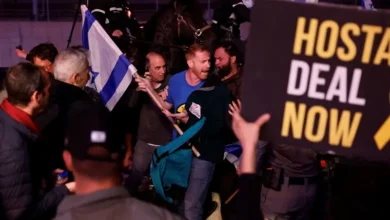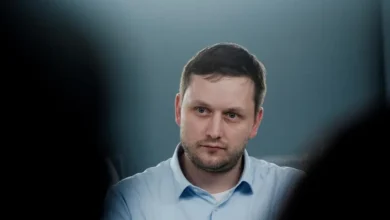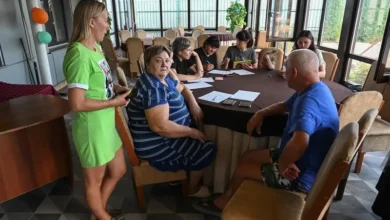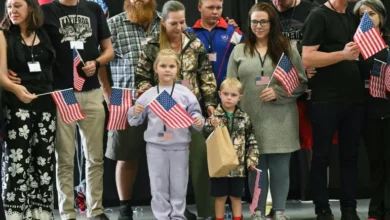Learning to live after my husband’s suicide
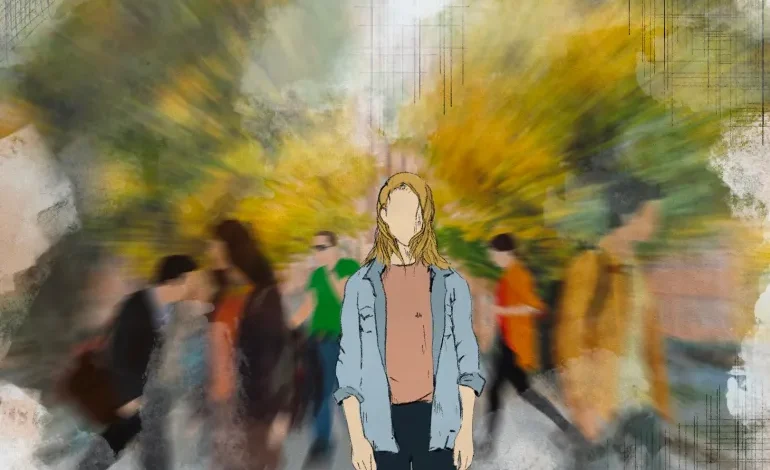
That Easter was particularly hot. As I lay in the inflatable kiddie pool in my dried-up yard in California’s Inland Empire, I squinted my eyes and watched the balmy sun flicker between the palm trees. The garden hose sounded like a fountain as it flowed into the pool.
I dreamed of the life stretched out ahead of me. I could see it all: the spacious adobe house painted into a sage and cactus-dotted desert with terracotta dirt; the kids trudging to the kitchen, grumpy for breakfast, the aroma of espresso from a new moka pot; the tenured position I’d pounded the pavement for.
I ended the day face down, head buried in my dusty grey carpet, shards of the person I’d been that morning. I think of that day now – of that moment – as the great non sequitur of my life; when the world – and myself – as I knew them were irreversibly altered.
That was the day I learned that my husband Stanton, whom I’d left just four months earlier, had died by suicide.
This is the story of how his death shaped my life.
Stanton
While this story isn’t about Stanton, it can’t be told without him.
I used to joke that we’d met on Craigslist. Before moving from England to the United States in the fall of 2013 to start my PhD, I landed on the internet to find housing. I discovered an advertisement posted by a sociology graduate student living in a house with all my desired specifications.
We first spoke on the phone – chatting for more than an hour as we exchanged stories of graduate school atrocities and analysed the supernatural creatures we most identified with. The rapport was immediate. I decided to move into his house.Sometimes you meet someone who speaks the same language as you, without using words at all. That was what Stanton and I had: an innate understanding. We’d sit on our porch – or with our feet dangling in the pool during the hot summers – talking, from the lilac sky at dusk until there were cracks of light again the next morning. We’d plot innocuous social experiments that we could conduct on unsuspecting victims. He’d tell me about his sociology favourites – Kierkegaard, Marx, and Durkheim and hypothesise about identity theory (the subject of his dissertation) while I’d unpack my thoughts about the fringes of earthquake prediction.
My time with Stanton flowed seamlessly. He was charismatic and deeply intelligent (with a fan club of students who would line up for his office hours, I suspect, just to be entertained). Unlike in other relationships I’d had, my mind never stepped outside of the relationship to analyse it. I was comfortably along for the ride of this budding friendship.
When love entered the picture, it came hard and it came fast. Why not marry your best friend, I thought.
On a whim, at the end of summer, about a year after I moved into his house, we giddily drove several hours across the Mojave and eloped at the Little White Wedding Chapel in Vegas. He wore khakis and his favourite plaid and I wore salmon slacks and a tank top. We bought sterling silver rings at a tourist shop.
We moved out of the house we shared with other PhD students and into a little apartment surrounded by palm trees where we’d spend our nights pretzeled together on the sofa or animatedly debating inconsequential ideas with unintelligible sketches on a whiteboard we bought for that purpose. No topic was too taboo, no opinion was too bold. We were explorers of subject matter.
Life was simple, conversation was gushing, and we were happy.
‘As long as I have you’
Stanton was never one to cry. He’d rarely tell me if something was bothering him. He had a diagnosis of generalised anxiety disorder when we met. The Diagnostic and Statistical Manual of Mental Disorders, Fifth Edition defines it as, “excessive anxiety and worry (apprehensive expectation), occurring more days than not for at least 6 months, about a number of events or activities (such as work or school performance)”. He quipped more about the grating side effects of his medication than about his anxiety.
I don’t remember how the conversation got there, but he told me that sometimes he wished he’d get hit by a bus. That way, his death wouldn’t be anyone’s fault. This revelation was so abrupt and matter-of-fact that I almost didn’t grasp it. I couldn’t weigh its gravity. I wrote it off as a deadpan expression of common frustrations with daily life.
Although he assured me he’d never do something like that to his family, I wish I’d probed more. I wish I’d recognised the signs.
They say hindsight is 20/20.
Not long after we married, the actor Robin Williams died by suicide. There was tumult in my gut as I read that news. Like Stanton – whose comedic inclinations never wavered, even in the midst of his battle with anxiety and depression – Williams seemed deeply empathetic and humorous, adept at hiding his pain behind laughter.
“Promise me you’ll never do what Robin Williams did,” I asked Stanton one night as we watched Good Will Hunting.
“I would never, as long as I have you with me,” he replied.


